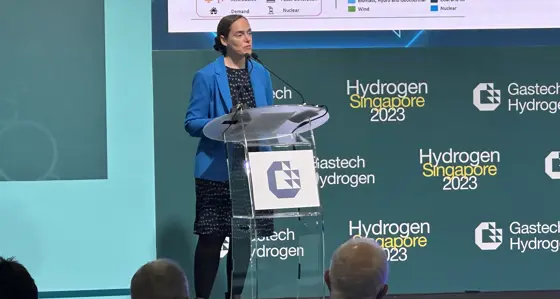
The EU Delegated Act on hydrogen has arrived…
13 September 2022
Europe plans to consume 20 million tonnes per year of renewable hydrogen by 2030 as part of its RepowerEU proposals, aimed at reaching net zero by 2050 and increasing energy security in the wake of Russia’s invasion of Ukraine.
The Delegated Act is a crucial step in this ambition as it clarifies what exactly makes renewable fuel renewable by setting standards on how carbon intensive the supply chain – and in particular the production method – can be. This standard gives hydrogen producers the clarity they need to optimise their project concepts design around those rules and is a major policy step in unlocking the 20 mt of renewable hydrogen consumption the EU envisages. However, as most carbon emissions are either already or soon-to-be regulated within the EU, there is concern among industry participants that further regulating hydrogen is a step too far and imposes unfair restrictions on one part of the energy system.
Below we outline what these restrictions are and make the case that:
- The Emission Trading System (ETS) cap prevents electrolysis from increasing CO2 emissions, and the requirements imposed by the Delegated Act could increase the carbon intensity and cost of hydrogen production.
- In particular, the ‘additionality’ requirement will become increasingly hard to define in a defensible way and could lead to market distortions. If applied it should apply to all new electricity demand, not just electrolysers.
- Spatial matching mistakenly assumes that it’s good to locate production close to demand, and cross-sector impacts require more careful consideration.
Download the full article below to find out more and get in touch with one of our hydrogen experts to discuss this topic further.
Alastair Davies, Expert in energy systems modelling
Alex Weir, Expert in energy policy and market design
Nimo Bergstrom, Expert in energy systems modelling
Shane Heffernan, Expert in hydrogen
Related Insights

Five takeaways from the UK's first hydrogen allocation round
In December 2023, the Department for Energy Security and Net Zero (DESNZ) announced the results of its first hydrogen allocation round (HAR1), a significant step in promoting the development of the UK’s hydrogen economy.
Read more
Five things we’ve learned from speaking at hydrogen conferences around the world
Baringa’s hydrogen experts have been presenting our views on the developing hydrogen market at three conferences across the globe, and we’re keen to share some of our insights with you.
Read more
Texas - the hydrogen export powerhouse of the future
Texas is positioning itself as a global leader in hydrogen exports, which offers transformative opportunities to repurpose existing storage, transport and export infrastructure throughout the state, and in particular on the Gulf Coast.
Read more
How can Australian developers capitalise on the hydrogen export opportunity to East-Asian markets?
The role of hydrogen as an enabler of net zero targets in South Korea and Japan are making a market for hydrogen exports. But how can Australian developers tap into the opportunity?
Read moreIs digital and AI delivering what your business needs?
Digital and AI can solve your toughest challenges and elevate your business performance. But success isn’t always straightforward. Where can you unlock opportunity? And what does it take to set the foundation for lasting success?